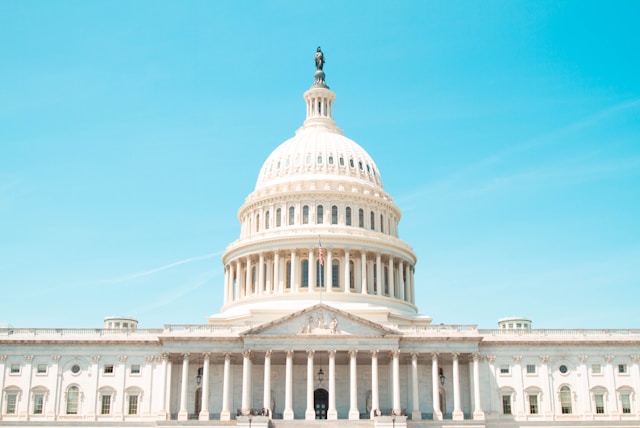Visa Stock Analysis: Is Visa a Strong Opportunity Ahead of Q4 Earnings?
$325.48
28 Jan 2026, 19:25

Unsplash.com

U.S. President Donald Trump has temporarily suspended military assistance to Ukraine following a tense confrontation with Ukrainian President Volodymyr Zelenskyy at the White House last week. A senior White House official confirmed the move, signalling a deepening divide between the once-close allies.
Since taking office in January, Trump has redefined U.S. policy on Ukraine and Russia, opting to engage in direct negotiations with Moscow. This shift led to a heated clash with Zelenskyy on Friday, where Trump allegedly criticized the Ukrainian leader for not showing enough gratitude for U.S. support.
While the White House has not provided details on the extent of the aid freeze or its duration, the Pentagon has also remained silent on the matter.
The decision has sparked outrage among Democrats in Congress, with Senator Jeanne Shaheen condemning the move as a win for Russian President Vladimir Putin.
“By freezing military aid to Ukraine, President Trump has left the door wide open for Putin to escalate his violent aggression against innocent Ukrainians. The repercussions will be devastating,” Shaheen warned.
Trump’s move has also intensified pressure on European allies, particularly Britain and France, whose leaders visited the White House last week and have publicly backed Zelenskyy since the dispute.
As Washington pulls back, European nations are stepping up their efforts to bolster Ukraine’s defence. The European Union (EU) is considering a military support plan, including potential troop deployments to enforce a ceasefire, though they stress the need for some level of U.S. backing.
French officials strongly condemned the suspension of U.S. military aid, with French Junior Minister for Europe Benjamin Haddad stating:
"Pausing arms support for Ukraine makes peace more difficult because it strengthens the aggressor—Russia."
Meanwhile, European Commission President Ursula von der Leyen has unveiled plans to increase EU defence spending, potentially mobilizing €800 billion ($840 billion) in military resources. An emergency EU summit is scheduled for Thursday to discuss further actions.
Despite the ongoing tensions, Trump suggested that a potential minerals deal with Ukraine could still move forward. The agreement, aimed at opening up Ukraine’s mineral resources to U.S. investment, was set to be signed in Washington last Friday before the Oval Office dispute disrupted the plans.
When asked on Monday whether the deal was off the table, Trump responded:
"No, I don’t think so."
Vice President JD Vance later echoed this sentiment in a Fox News interview, urging Zelenskyy to agree to the deal.
With Russia still controlling roughly 20% of Ukrainian territory, Zelenskyy has insisted that any ceasefire must include concrete security guarantees from Western nations to prevent future aggression. However, Trump has so far declined to provide such assurances.
It remains unclear whether the suspension of aid includes halting munitions deliveries for weapons already supplied to Ukraine, or if U.S. intelligence-sharing—such as missile target identification—will also be affected.
Additionally, key members of congressional oversight committees, including the Senate Armed Services Committee, were reportedly not informed in advance about the aid freeze, according to sources cited by Reuters.
With no clear timeline for resuming military aid and uncertainty surrounding U.S. foreign policy on Ukraine, the coming weeks will be crucial for Kyiv and its allies. As European leaders explore alternative defence strategies, Washington’s next steps will be closely watched—especially as the conflict with Russia continues to escalate.
(Sources: cnbc.com, reuters.com)